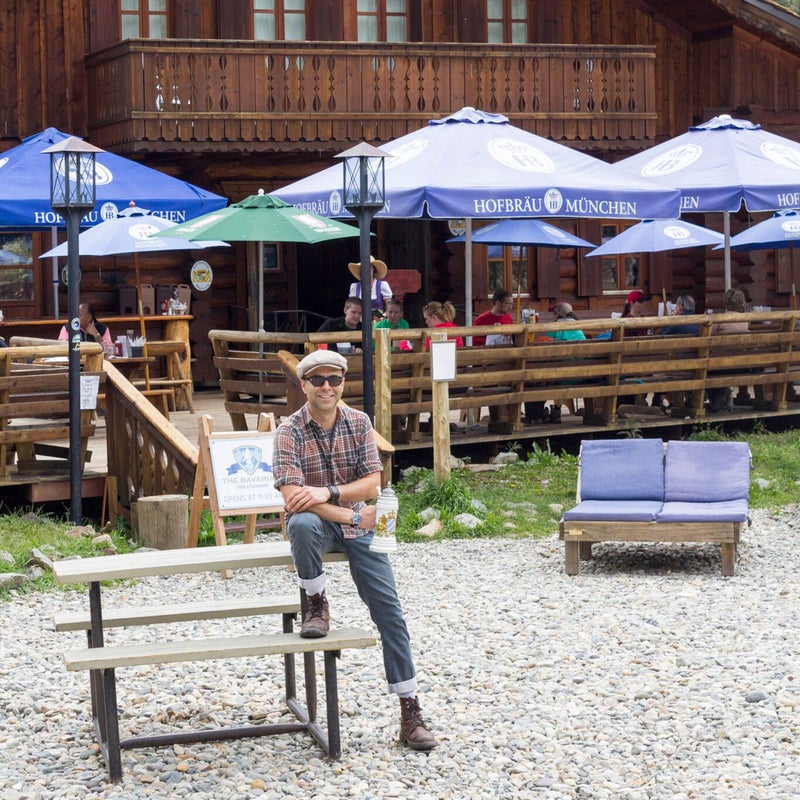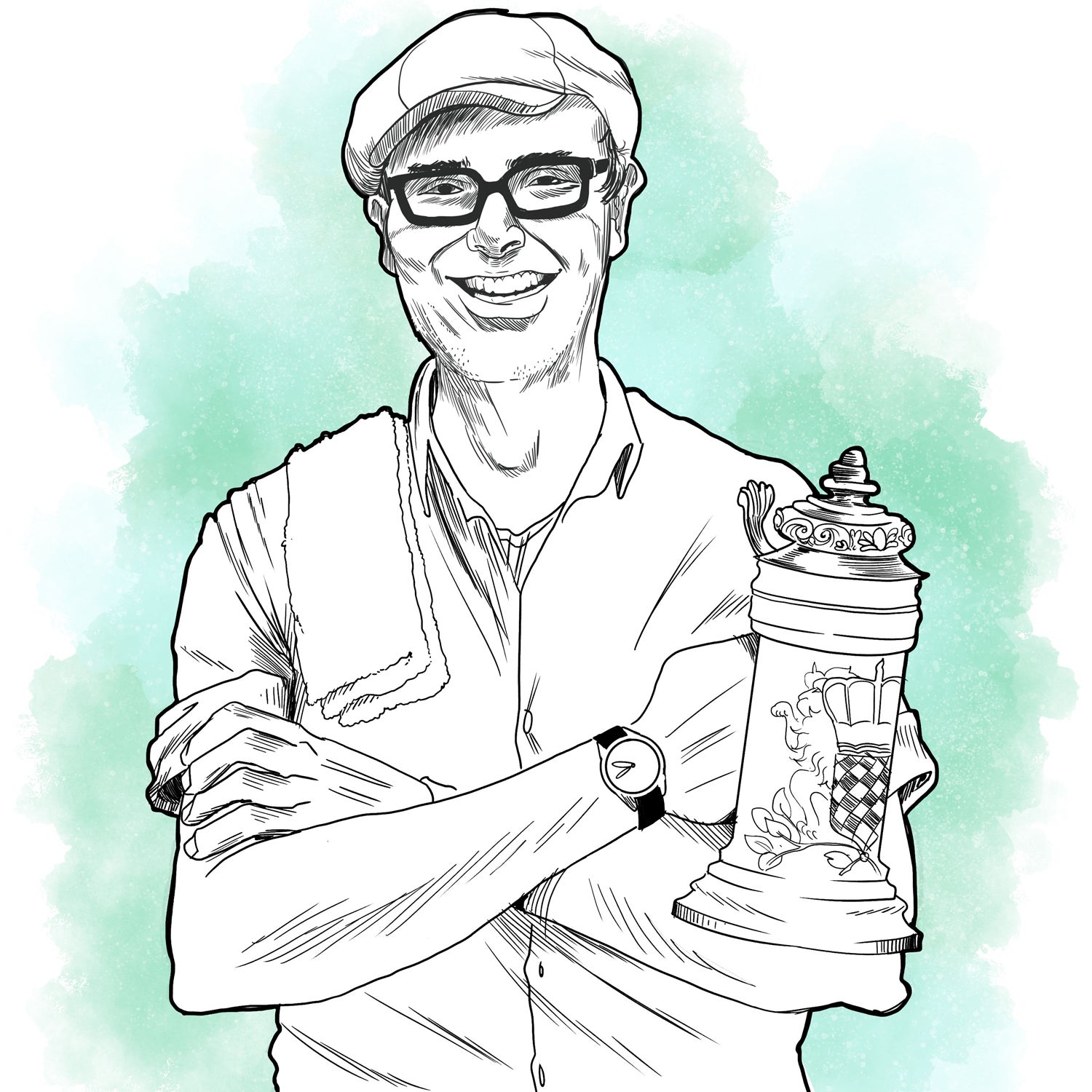Name: Goiyo Perez
Job: Bar manager, the Bavarian
Home Base: Taos, New Mexico
Age: 40
Education: Berklee College of Music in Boston, Massachusetts
Goiyo Perez never imagined he’d be running a German beer hall perched at 10,200 feet in the mountains of New Mexico. The Bay Area native dreamed of becoming a musician. He was drawn to Taos after road-tripping through the Four Corners. “It seemed like the perfect place to drawing inspiration for my music,” he says. “The nickname Land of Enchantment really rings true.”
In 2013, Perez and his girlfriend took a leap of faith and moved. They opened a small gallery but quickly felt the effects of living in a seasonal town. “After the first winter, I had to sell some of my instruments to make ends meet,” he says. “I knew I needed a job to supplement the shop in winter.” Perez applied for a job at the Bavarian, a beloved après spot at the base of Lift Four at Taos Ski Valley. Perez was hired as a bartender, but his willingness to do inventory and help where it was needed quickly led to a management position. “It’s a great gig. We have beers you won’t find outside of Germany, and the staff is like one big family,” he says. “You hustle, but this job gives me the stability to have time to write music and live in this beautiful place.”

On His Hours: “A typical shift is eight or nine hours nonstop, and if you do a double in the winter, that can easily be a 14-hour day. Nobody sits down, and at 10,000 feet of elevation, your body feels this quite dramatically. Despite what people think, we don’t get ski breaks. During the holidays, it’s not unusual to work eight ten-hour days in a row. There’s a constant hustle, and if I’m doing my job right, guests don’t see that.”
On His Service Industry Background: “I had managed cafés and worked in restaurants. Accounting and computer skills are useful, but success in the service industry really comes down to how well you can communicate with your staff and your customers. Not everyone can maintain a calm disposition while they’re trying to do a hundred things at once. You need to be able to go to your Zen place when things get crazy, and they do get crazy.”
On His Favorite Daily Ritual: “The group huddle at the start of the day. The staff sits at a big round table, drinks coffee while rolling silverware, and discusses everything that is wonderfully conceivable under the sun.”
On What He Values Most in the People He Works With: “Everyone I work with is super hardworking and they just persevere. Taos has a depressed economy in the sense that there is really no other industry than tourism. It’s one of those places that you have to work hard if you want to live here. We call it the Taos shuffle—people moving around working multiple jobs.”
On His Biggest Pet Peeve: “Self-absorption. When people are at a bar or restaurant, and they can tell the staff is in the weeds, and yet they can’t look beyond themselves to interact with the staff with a bit of compassion.”
On the Most Important Piece of Gear He Owns: “People in the service industry always have problems with their feet. You’re beating on them constantly. I wear with inserts. They’re comfortable but also tough enough to stand up to the brick floor in the dining room and the snow, ice, and rain.”
On His Sleep Routine: “In the winter season, a good night would be six to seven hours if I’m able to go straight to bed upon arriving at home. By the time I make my way down the mountain and into my front door in the winter season, it’s usually sometime between midnight and 1:00 a.m. I wake up around 7:00 a.m. so I can leave the house by 9:00 a.m. If it snows overnight, I have to leave around 8:00 a.m.”
On How He Recharges: “When I get home, I sit on my couch and strum my guitar to decompress.”
On His Favorite Guilty Pleasure: “Pizza, extra sauce, good scotch, good tequila, good cigars.”
On the Most Recent Habit He’s Adopted: “A morning practice which involves doing qigong, followed by a short meditation session, followed by singing two or three tunes that I’m working on, while drinking amounts of coffee that I’d rather not disclose.”
On How He Achieves Work-Life Balance: “Living in a place with a seasonal economy makes for a great deal of imbalance. The term ‘get it while you can’ becomes an underlying driving force that pushes you beyond normal healthy thresholds. This is just a fact, and it’s how you survive. In the face of this, I try to adopt a mindset that puts my own health and balance first, before financial obligation or any obligation. I’ve witnessed co-workers have breakdowns from overcommitting.”
On His Perfect Day: “The idea of a perfect day would mean that every other day of my life falls short of some measure or is in some way incomplete. I think a good day would be one where I can feel truly present in the moment all the way through.”


